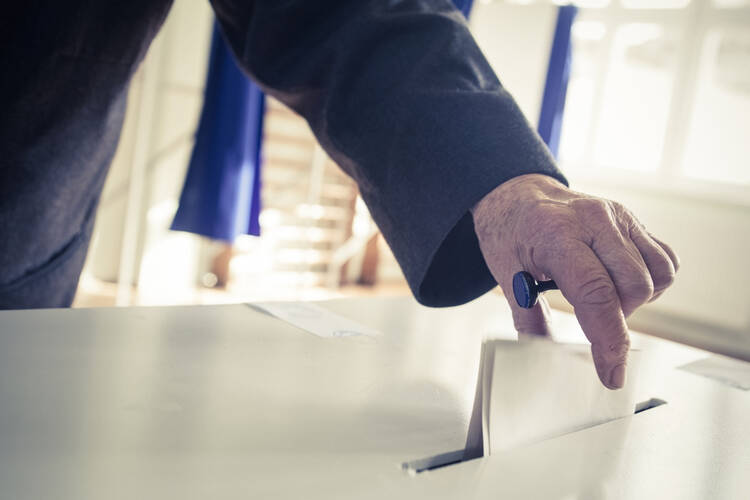Hillary Clinton’s speech on voting rights is keeping alive the argument over whether it’s a good thing to encourage more people to cast ballots. It’s also raising familiar charges of hypocrisy, as she accused Republicans Scott Walker and Rick Perry of “deliberately trying to stop” citizens from voting in Wisconsin and Texas but said nothing about the lack of an early voting period in her home state of New York. To be fair, she has called for an early voting period of at least 20 days in every state. This would cover heavily Democratic states like Massachusetts and New York, where the discouragement of voters is more about protecting incumbents in primaries.
Clinton also wants automatic, universal registration for all citizens when they turn 18, which the National Review’s Daniel Foster calls a “terrible idea.” The current system, he writes, “improves democratic hygiene because the people who can’t be bothered to register…are, except in unusual cases, civic idiots.”
Foster adds, “If you want an idea of what political discourse looks like when you so dramatically lower the burden of participation that civic idiots elect to join the fray, I give you the Internet.” I’m not sure where he gets the idea that the biggest idiots on the Internet aren’t registered to vote.
Vox’s Ezra Klein gets at the difficulty of determining civic idiocy: “Voters with more information are not always more informed.” He cites plenty of evidence that people seek out news sources that confirm their existing beliefs. “More informed” can mean two hours a day, not just one, reading the Huffington Post or watching Fox News.
In America’s early days, the right to vote was limited to (male) property owners, on the justification that they were the ones paying taxes. As the Atlantic’s Peter Beinart reminds us, John Adams once wrote that those “who are wholly destitute of Property” could not be responsible voters because they are “too dependent upon other Men to have a Will of their own.” (This is similar to the pitch of many candidates who offer their personal wealth as a guarantee of political independence. “I can’t be bought,” said supermarket billionaire John A. Catsimatidis when running for mayor of New York in 2013, putting himself in the same boat as the man he was trying to replace, Michael Bloomberg.)
Beinart notes some residual support for limiting the vote to property owners: “In 2010, Tea Party Nation President Judson Phillips observed that ‘The Founding Fathers … put certain restrictions on who gets the right to vote…. And that makes a lot of sense, because if you’re a property owner you actually have a vested stake in the community.’” It’s kind of like requiring someone to have “skin in the game,” or some kind of financial investment, before participating in democracy. There’s a similar rationale for voter registration deadlines that are weeks or months before an election; you need to put down roots somewhere before you can have a say in how you’re governed.
This brings me to the story of Kalief Browder, a 22-year-old black man whose suicide was reported last weekend. Ta-Nahesi Coates recounts his tragic life: “in 2010 he was a boy of 16, sent to Riker’s Island for a crime he did not commit. As reported by the great Jennifer Gonnerman, Browder sat there for three years without a trial. He was repeatedly beaten by guards and inmates while in Rikers. He spent two years in solitary confinement—a euphemism for living under torture.”
As far as I can tell from the reporting, Browder did not own property. And he did not seem to have the financial resources for a “vested stake” any time soon—understandable given his years-long ordeal in jail and his multiple hospitalizations for previous suicide attempts. I don’t know how closely he followed the news about the Trans-Pacific Trade Agreement, or whether he found time to read the latest opinion column on how tax cuts lead to more government revenue. I do know that he had skin in the game. He was more directly affected by the way the government treats its citizens than just about any teenager in America, and I don’t see how democratic hygiene would have been harmed if he had automatically been registered to vote at age 18. Nor would there be anything unhygienic about the teenagers threatened by police at a community swimming pool in Texas being encouraged to vote when they reach legal age.
There’s something perverse in grousing about voter registration for those most directly affected by government policies, whether through the criminal-justice system, tax policies that exacerbate income inequality, or local laws that restrict affordable housing and thereby make it more difficult for individuals to become property owners. The right of all Americans to participate in the political process is something we should have settled a long time ago.








